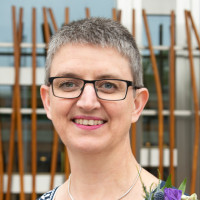Routes to Independence
Speech from the opening plenary of the Radical Independence Conference, 20 February 2016, in Edinburgh.
Good morning everyone. It is a huge honour to be speaking here, once again. I’d like to begin by saying thank you to Myshele and others for bringing us together. But thank you, also, for being here today. That we have gathered here, nearly a year and a half after the referendum, still willing to engage, still willing to learn, still willing to debate with each other, still willing to be part of the social movement that has been instrumental in changing the nature of Scottish politics.
On 18th September 2014, we may have lost the vote. But we won so many other things. We have the foundations of a society that expects better from its politics and its institutions. We have communities that are determined to stand up against injustice. We have a movement that has not died like some people thought it would. And it is this movement, our movement, that gives me hope, and provides a route to a better, bolder, fairer and more equal Scotland. The strength of this movement is that it has many different faces and aspects.
Last night, I attended a meeting in Dundee organised by Trade Union shop stewards from Dundee City Council. This meeting was to discuss the £23m cuts that will probably be voted through by the SNP administration next Thursday. It was a cold, damp Friday night, and yet over 80 folk turned up to hear what the SNP finance spokesperson – Willie Sawyers – had to say, to question him, to challenge him. This councillor has been an activist for many years. He’s widely considered to be a good man. He campaigned alongside the miners in the 80s. He campaigned against the poll tax. He fought for a better Scotland during the indy ref.
However, last night, he stood up and defended the council tax freeze. Not only did he defend the CT freeze, he acknowledged that this would lead to cuts and job losses. Not only did he defend these cuts and job losses, he also accepted the associated changes in front line services and changes to the jobs of council workers that will inevitably make their lives harder – things like anti-social shift patterns, reduced hours.
As he spoke, and as others in the room reacted, I realised two things: both how successful we had been, and how much work we still have to do. During the independence campaign, we, as RIC, as radical activists, created the expectation that a fairer, more equal Scotland was achievable. Not a low tax Scotland, but a Scotland with a fairer distribution of wealth. Not a corporately controlled Scotland, but a Scotland where people have power and control over the decisions that affect their lives. We came to expect, to demand, a brighter future for our children and grandchildren.
I also realised that the need for strong, campaigning popular movements, like the one in Dundee, like the Living Rent Campaign, like Scotland against fracking, like the Say No to TTIP campaign. These movements make sure our politicians stay true to our vision that another Scotland is possible. That is the legacy of the referendum, whether or not we won. We believe we can have a bold, radical, anti-austerity politics. Creating that expectation is a significant part of gaining independence.
Now we need to find ways to make sure our councils, parliaments, institutions and society’s structures catch up with that politics.
So, together, as a movement, we must demand that Calmac is kept in public hands. Together we must work hard to bring our railways back into public ownership. Together we must work hard to ensure we do not have standardised testing. Together we must demand the repeal of the Offensive Behaviour Act. Together we must fight for a complete ban on fracking. And together we must reform our land ownership.
We know that the wider yes movement supports these things. We know that very many of those who have flooded into political parties in the last 18 months believe these things. We must keep making these arguments. And we must use every route possible to hold our leadership to account.
So, talking and thinking about routes to independence as we are here to do today. The way we get independence is to be independent. We must develop our own structures that are truly democratic – making use of radical, participatory tools to make decisions – there are many examples from around the world we can use as models – participatory budgeting from Brazil, citizens assemblies from South Africa.
We must work out how our economy will work, who it be accountable to, who it will serve, what our currency should look like. We must continue to reject fracking, to say no to privatisation of our public services, to weapons of mass destruction, and to stand against the ideological obscenity that is austerity.
So, our route to independence is to reject all the things Westminster has stood for for so long. That is how we will achieve independence. But more importantly than simply independence, that is how we achieve a better, fairer, bolder Scotland that leads by example and does good in the world. Because another Scotland is possible.
